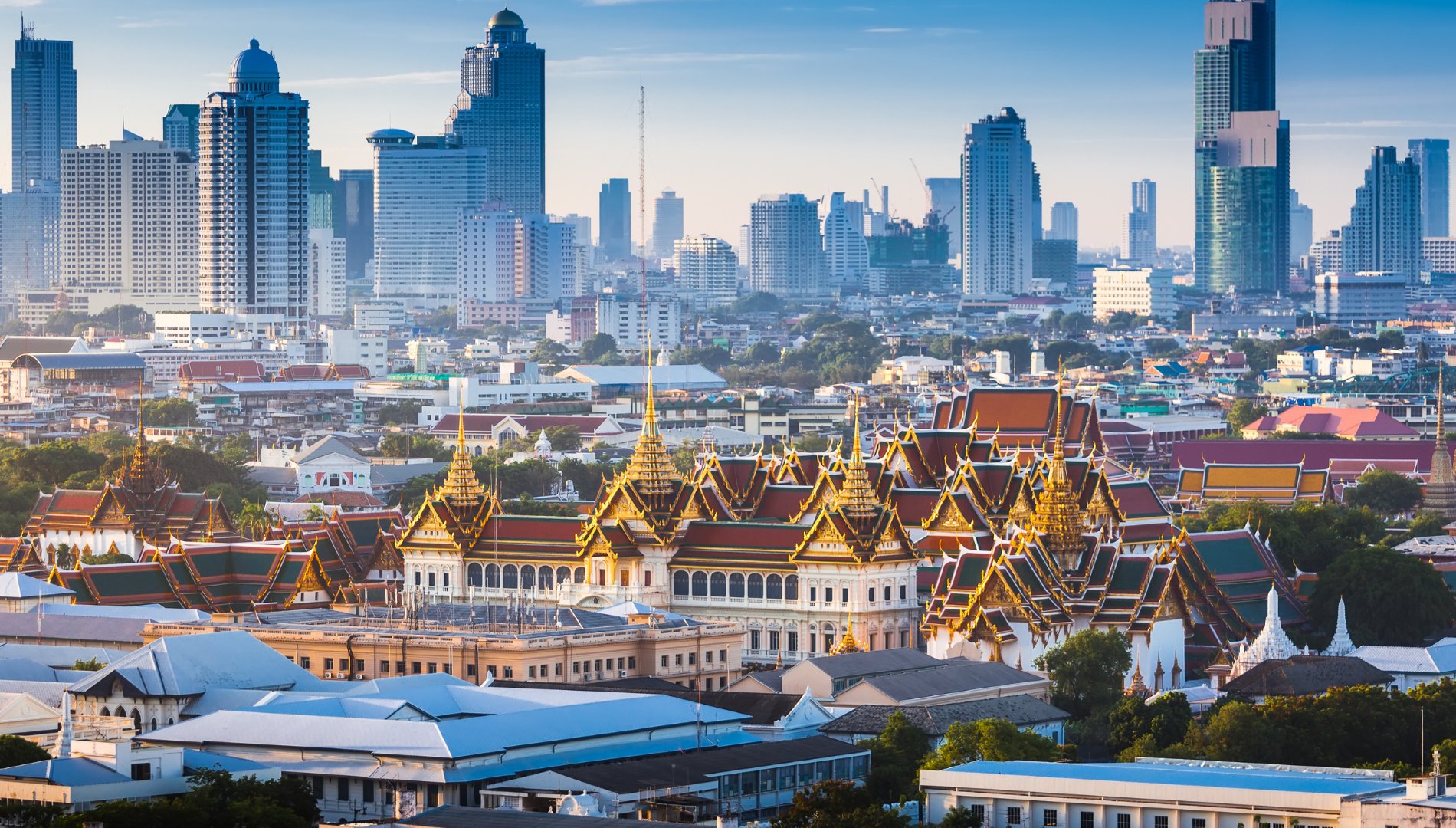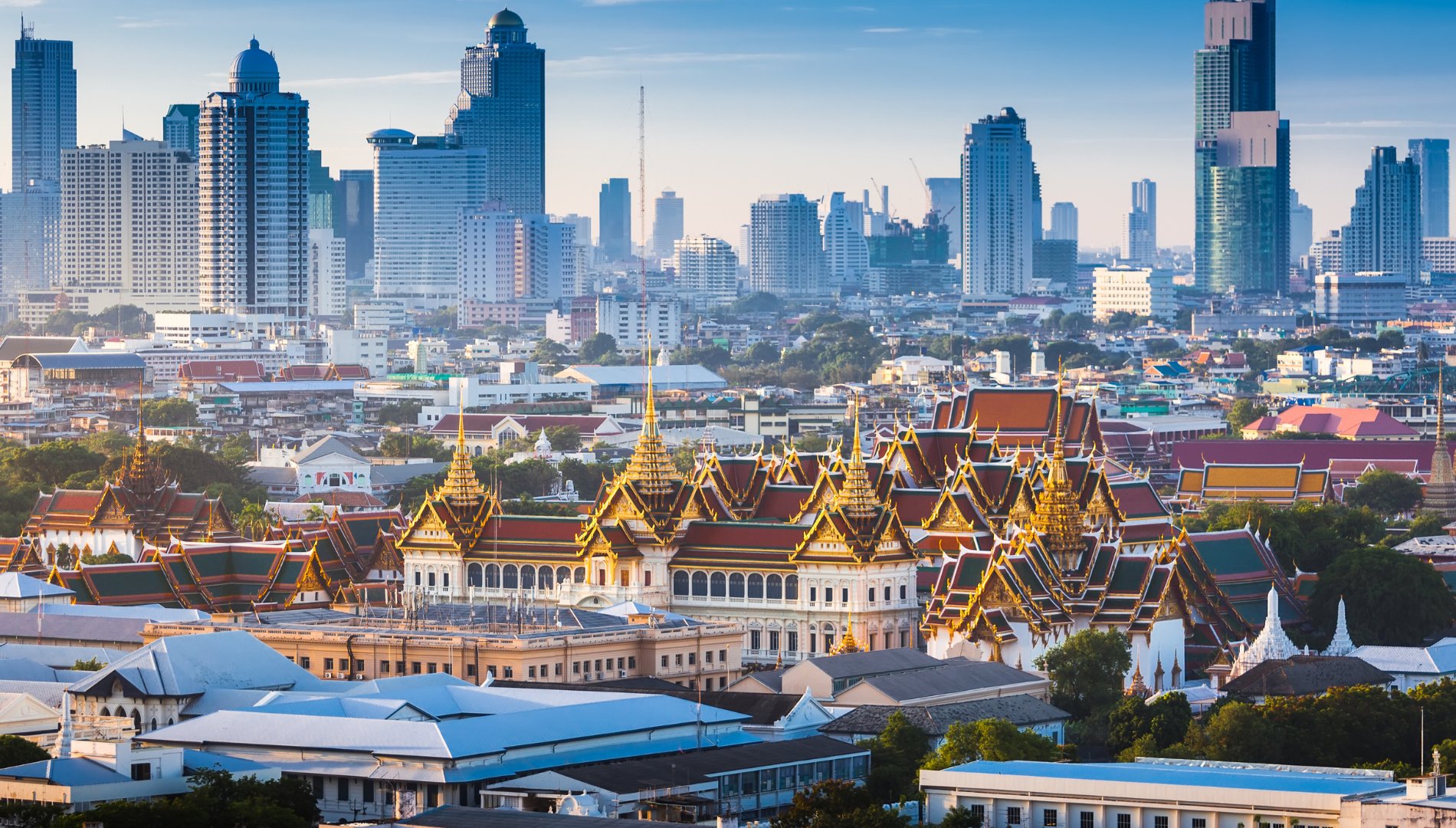Thailand, the Land of Golden Temples, is not only famous for its stunning landscapes and vibrant street food, but also for being the center of a unique and powerful industry: the amulet industry.
Dubbed the "Mutelu" economy, this blend of ancient beliefs and modern business has created the world's largest amulet market, with estimated annual revenues of 40 billion baht (approximately US$1.26 billion). It's a vivid example of how faith can drive economic growth, attracting millions of visitors seeking good fortune and peace.
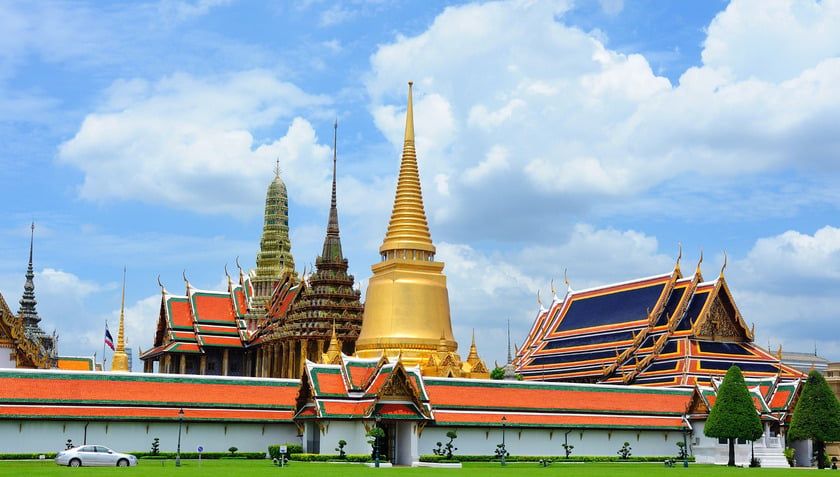
Thailand has the world's largest market for amulets, attracting foreign visitors, especially Chinese tourists, who come seeking good fortune.
Thailand's "Mutelu" economy is a broad concept, encompassing not only Buddhist amulets and talismans but also forms of divination, feng shui items, and products related to spiritual beliefs. The industry's strength stems from the deep-seated beliefs of the local population – with approximately 70% of Thais reportedly wearing amulets – and significant interest from international tourists, particularly from China, Japan, South Korea, India, and Europe.
From the bustling markets of Chiang Rai and the ancient temples of Phitsanulok to the Big Buddha Hill in Pattaya, this industry has transformed Thailand into a global hub for spiritual tourism and commerce. It's not simply about buying and selling goods, but also about cultural exchange, where visitors can immerse themselves in a spiritual atmosphere, learning about the stories and philosophies behind each item.
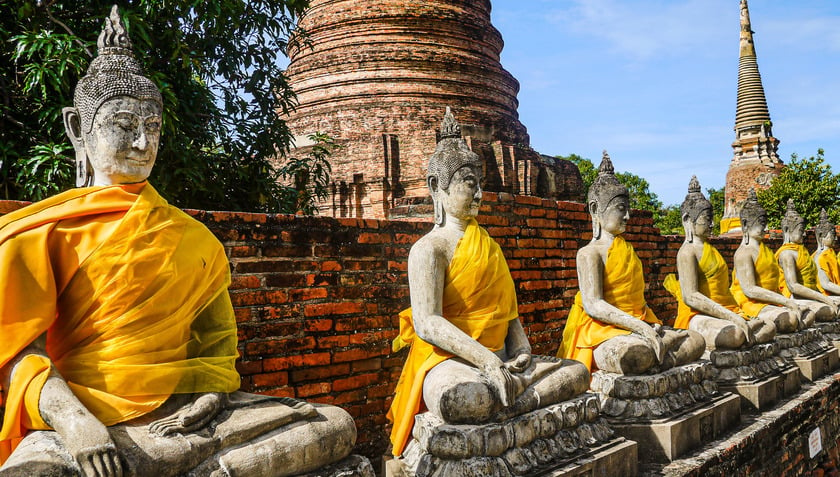
Thailand's amulet industry, known as the "Mutelu" economy, combines ancient beliefs with modern business, creating the world's largest amulet market.
Amulets, small, exquisitely crafted talismans, are the heart of the Mutelu economy. Thais revere these amulets for their strong belief that they bring blessings, protection from misfortune, attract wealth, improve health, or bring success in work and life. Beyond their profound religious value, these items are also living symbols of Thai cultural heritage, showcasing the artistry of sculpture, carving, and spiritual architecture.
In particular, the image of the Blindfolded Buddha (Phra Pidta Amulets), also known as the Covered Face Buddha or the Masked Buddha, is a spiritual treasure sought after by many. "Pidta" in Thai means the act of covering one's face with one's hands, depicting the Buddha using both hands to cover his senses. Thais interpret the meaning of the Blindfolded Buddha in three ways: not seeing evil, not hearing evil, and not speaking unwholesome words.
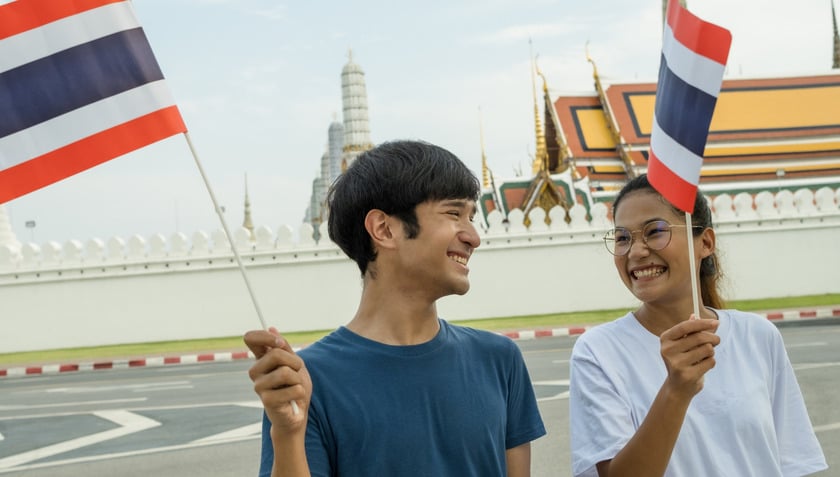
Thais and tourists alike believe these amulets can bring them peace and good fortune.
This helps practitioners avoid being controlled by greed, hatred, and attachment, thus guiding them towards liberation. It is believed that carrying the Blindfolded Buddha will turn misfortune into good fortune, avert calamities, and bring good luck, improved health, and a prosperous and wealthy life to the owner. In addition, the Kuman Thong golden boy is also one of the famous mystical items, sought after by many tourists to pray for good luck and peace.
The allure of the Mutelu industry is most evident in major trading centers. At the Big Buddha Hill (Khao Phra Yai) in Pattaya, thousands of tourists from China, Japan, Korea, India, and Europe flock to admire the Phra Buddha Sukhothai Walai Chonlatharn statue and purchase amulets as souvenirs or for good luck. In Bangkok, the Tha Prachan market near the Chao Phraya River is considered the world's largest amulet center, where countless amulets are displayed from neatly arranged stalls to cluttered plastic baskets, catering to everyone from collectors to those seeking spiritual connection.
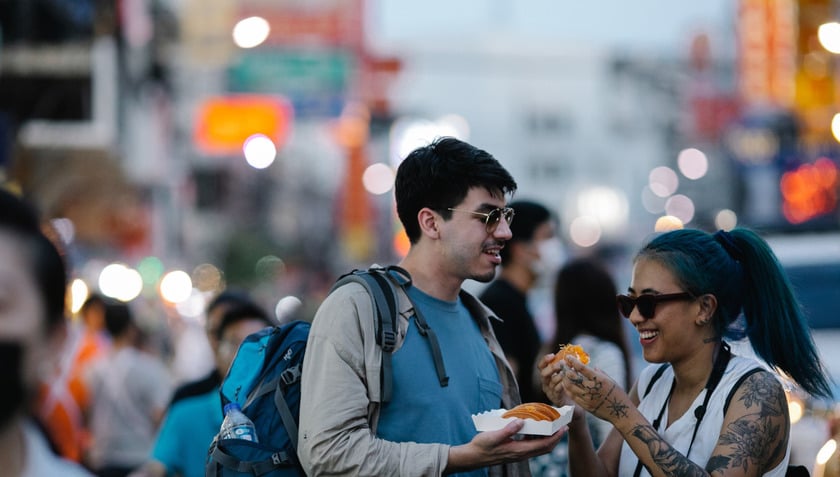
Foreign tourists are attracted not only by the appearance of the amulets but also by the story and meaning behind each item.
The "Mutelu" market is also constantly innovating, with many products designed specifically for women, such as Phaya Naga symbols, cloth amulets, jewelry, and cosmetics. These products are usually affordably priced, around 300-1,000 baht (equivalent to 10-30 USD), making them accessible to a diverse range of customers. At Tha Prachan market, amulet prices can range from 30 baht (1 USD) for common items to millions of baht for rare and valuable antiques. A prime example is the 19th-century Phra Somdej amulet of the monk Phra Somdej To, which can be valued at up to 15 million baht (500,000 USD) due to its age and sacred origins. Furthermore, a Phra Somdej amulet once purchased by Thai-Chinese billionaire Vichai Srivaddhanaprabha for 100 million baht (3.2 million USD) is believed to be the most expensive amulet ever sold in Thailand.
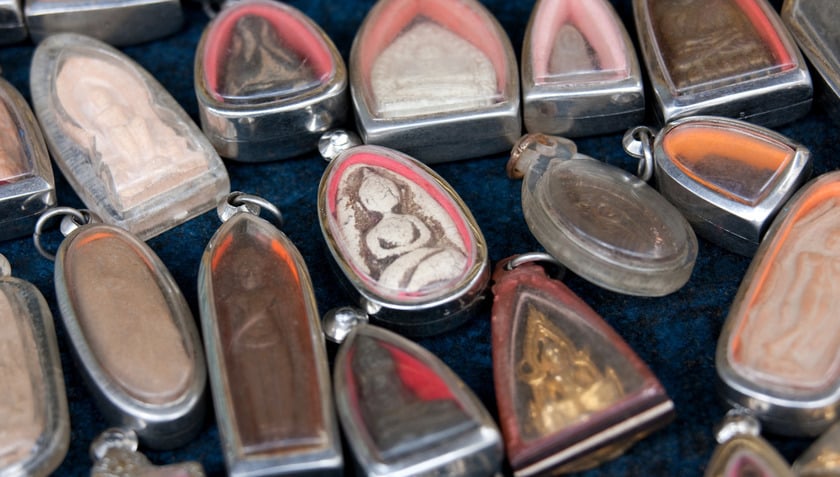
The Mutelu market continues to grow thanks to the appeal and power of digital technology.
The "Mutelu" industry is rapidly growing, with many young entrepreneurs (20-30 years old) using social media and livestreaming to expand their market globally. Products are also becoming increasingly diverse, ranging from traditional amulets to domestic and international pilgrimage tours. According to the Thai Chamber of Commerce, the Mutelu industry is expected to generate 1-1.5 billion baht in revenue in 2025, an increase of over 10% compared to the previous year, affirming its role as a significant economic driver.

Thailand's "Mutelu" economy exemplifies how traditional beliefs drive modern economic growth.
However, alongside its great prospects, the industry also faces significant challenges from the issue of counterfeit amulets. This is a major concern, especially for foreign tourists, particularly Chinese visitors, who are easily deceived into buying cheap amulets advertised as rare antiques. In response to this situation, Oramon Sapthaweetham, Director General of the Department of Business Development (DBD), has encouraged entrepreneurs to register their legal entities to enhance credibility and warned investors to conduct thorough market research. The DBD also provides free training courses on e-commerce, accounting, and taxation to support businesses in the industry.
Thailand's "Mutelu" economy is a prime example of how traditional beliefs can drive modern economic growth, transforming a cultural aspect into a multi-billion dollar industry. Despite facing issues such as counterfeit amulets, the fusion of art, religion, and economics in the Thai amulet industry continues to captivate the world, solidifying Thailand's position as a leading global spiritual and tourism hub.

 VI
VI EN
EN



